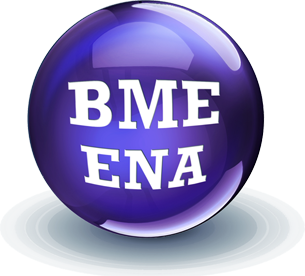Curriculum
THE CURRICULUM OF JOINT MASTER’S PROGRAMME IN BIOMEDICAL ENGINEERING IN UKRAINE
Recommendations of the Tempus Project Biomedical Engineering Education Initiative in Eastern Neighbouring Countries (BME-ENA)
|
1 Semester |
ECTS |
|
|
І. Mandatory Courses |
|
|
|
1.1 |
Occupational safety in industry |
1 |
|
1.2 |
Basics of sustainable development |
2 |
|
1.3 |
Design of biotechnological systems |
5,5 |
|
1.4 |
Medical Physics |
5 |
|
1.5 |
Innovation Management |
3 |
|
2. Selective Courses |
|
|
|
2.1. |
Foreign language professional direction |
1,5 |
|
2.2 |
Telemedicine and computer networks |
3 |
|
2.3 |
Cell and tissue biotechnology |
4 |
|
2.4 |
Biomedical nanoelectronics |
5 |
|
|
Subtotal for 1 Semester |
30 |
|
2 Semester |
|
|
|
І. Mandatory Courses |
|
|
|
1.1 |
Intellectual Property |
1 |
|
1.2 |
Civil protection |
1 |
|
1.3 |
Research on the topic of master's thesis |
1,5 |
|
2. Selective Courses |
|
|
|
2.1 |
Foreign language professional direction |
1,5 |
|
2.2 |
Marketing of the field |
1,5 |
|
2.3 |
Use of professional software in biomedical engineering |
4 |
|
2.4 |
Engineering support of healthcare technologies |
5 |
|
2.5 |
Digital signal processing and analysis in biomedical systems |
4 |
|
2.6 |
Diagnostic and therapeutic methods in arrhythmology and electrophysiology |
3,5 |
|
2.7 |
Biocompatible materials with desired properties |
4,5 |
|
2.8 |
Medical microprocessor systems |
4 |
|
|
Subtotal for 2 Semester |
31,5 |
|
3 Semester |
|
|
|
І. Mandatory Courses |
|
|
|
1.1 |
Philosophical problems of scientific knowledge |
1,5 |
|
1.2 |
Biomedical Information Imaging Systems |
5,5 |
|
1.3 |
Research on the topic of master's thesis |
4,5 |
|
2. Selective Courses |
|
|
|
2.1. |
Foreign language professional direction |
1,5 |
|
2.2 |
Pedagogy of Higher School |
1,5 |
|
2.3 |
Factors for successful employment in the specialty |
1 |
|
2.4 |
Diagnostic and therapeutic methods in arrhythmology and electrophysiology |
3 |
|
2.5 |
Bionics, biocybernetics and robotics |
4 |
|
2.6 |
Artificial blood circulation and artificial organs |
4 |
|
2.7 |
Electronic sensors and biochips |
3,5 |
|
|
Subtotal for 3 Semester |
30 |
|
4 Semester |
|
|
|
1.1 |
Research - practice |
6 |
|
1.2 |
Elaboration of the master's thesis |
22,5 |
|
|
Subtotal for 4 Semester |
28,5 |
European Credit Transfer and Accumulation System (ECTS) is a standard for comparing the study attainment and performance of students of higher education across the European Union and other collaborating European countries. For successfully completed studies, ECTS credits are awarded. One academic year corresponds to 60 ECTS-credits that are equivalent to 1500–1800 hours of study in all countries respective of standard or qualification type and is used to facilitate transfer and progression throughout the Union.
The ECTS will be complemented by the European credit transfer system for vocational education and training (ECVET) which the ministers are responsible for vocational training in 32 European countries agreed to develop in the Maastricht Communiqué of 14 December 2004.
ECTS also includes a standard ECTS grading scale, intended to be shown in addition to local (i.e. national) standard grades.


